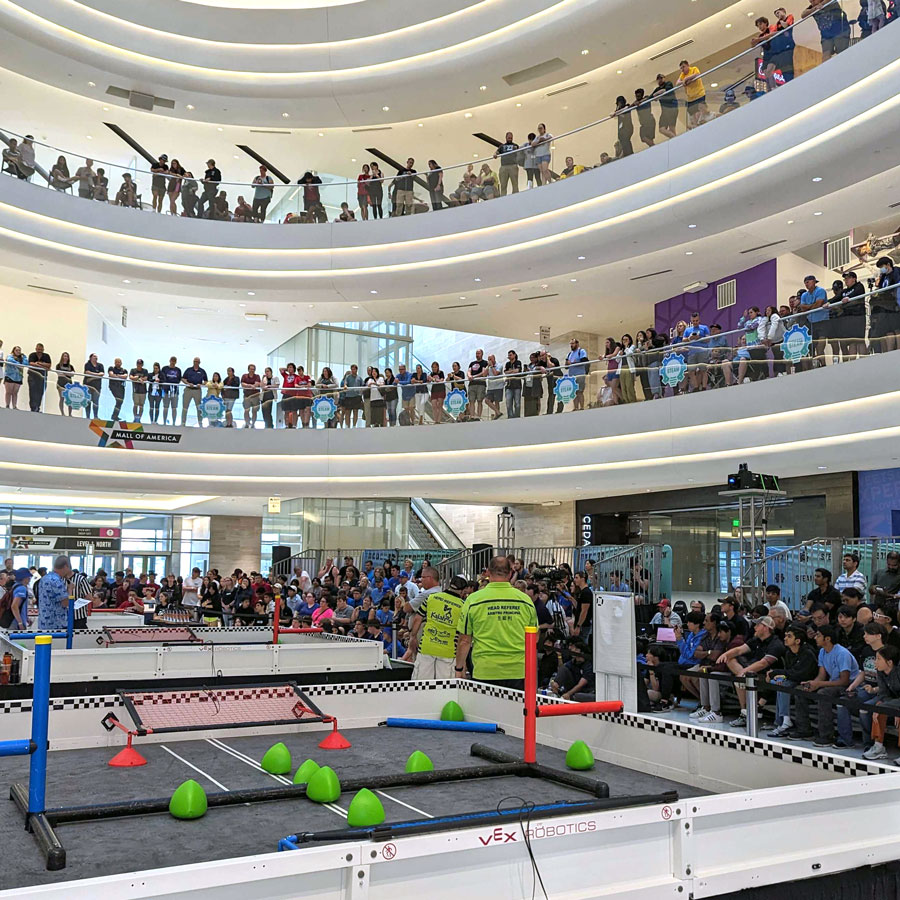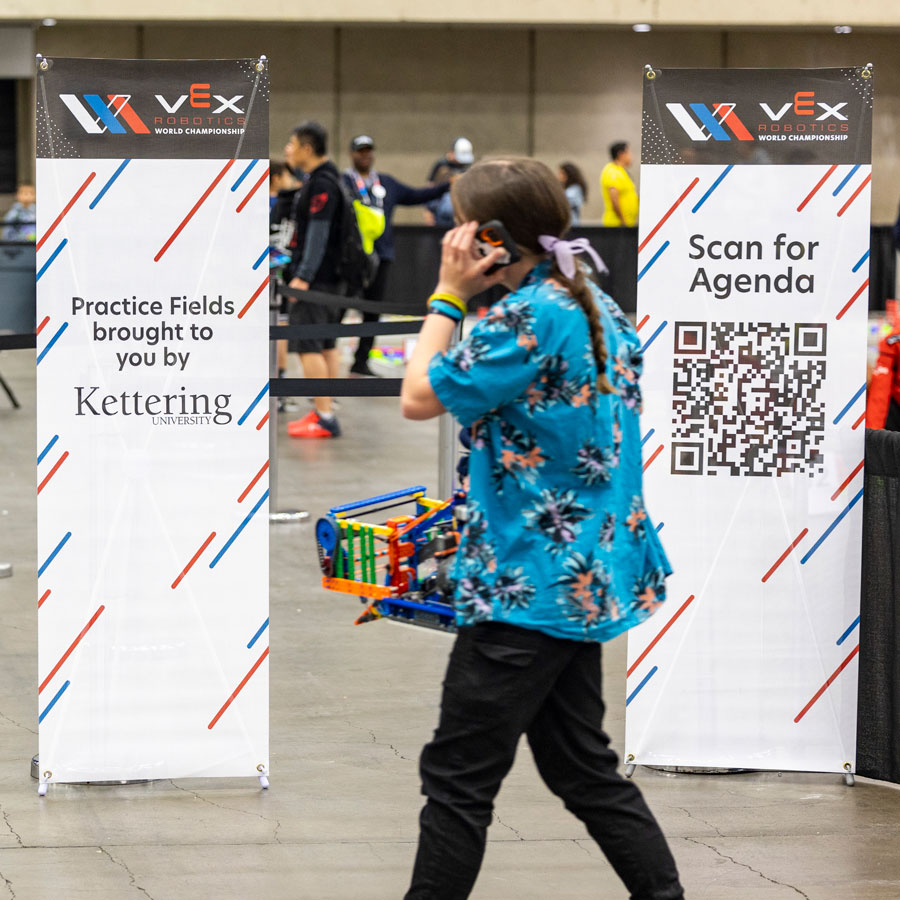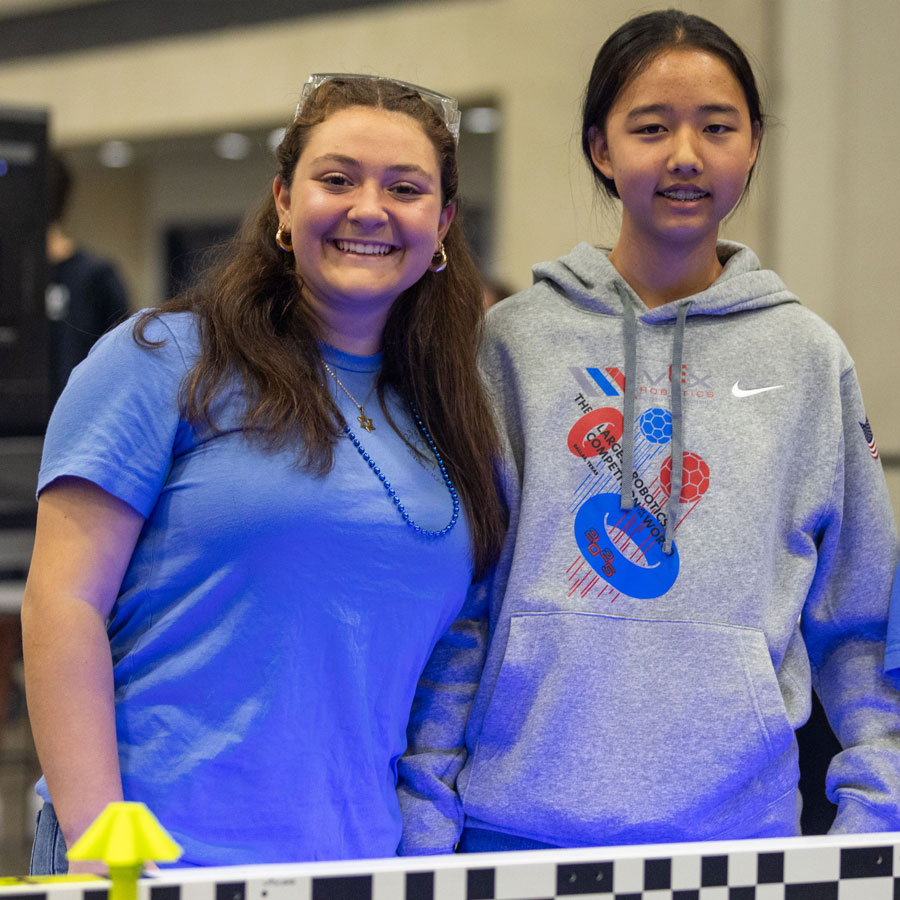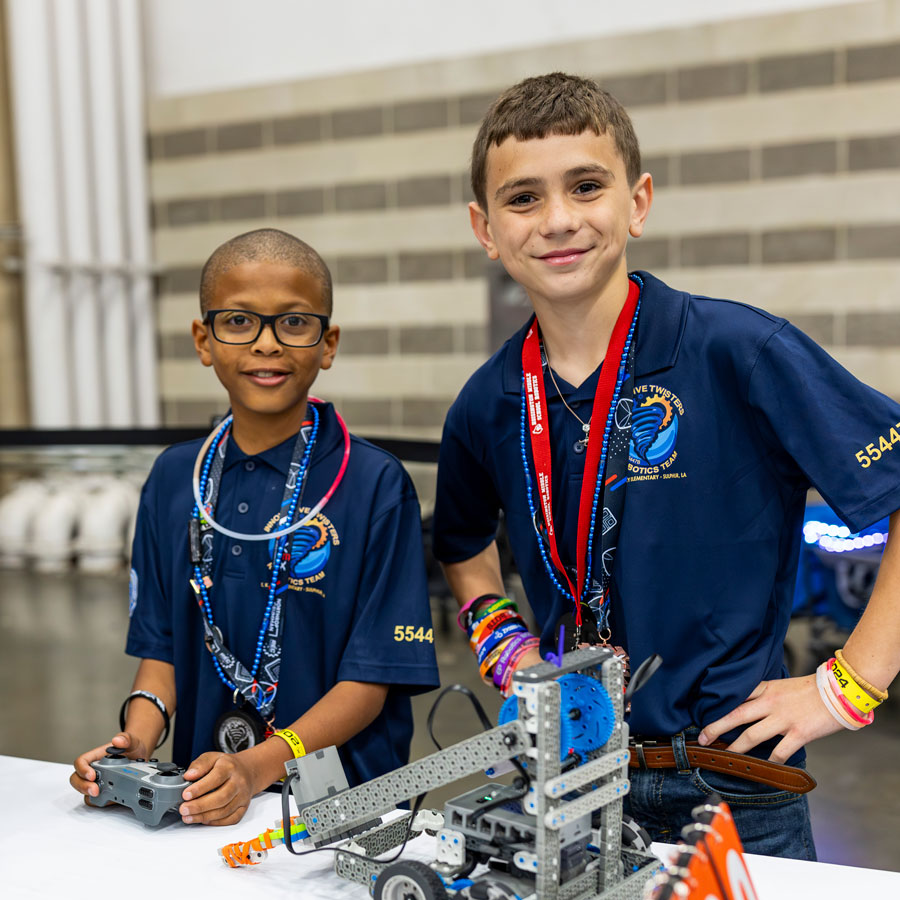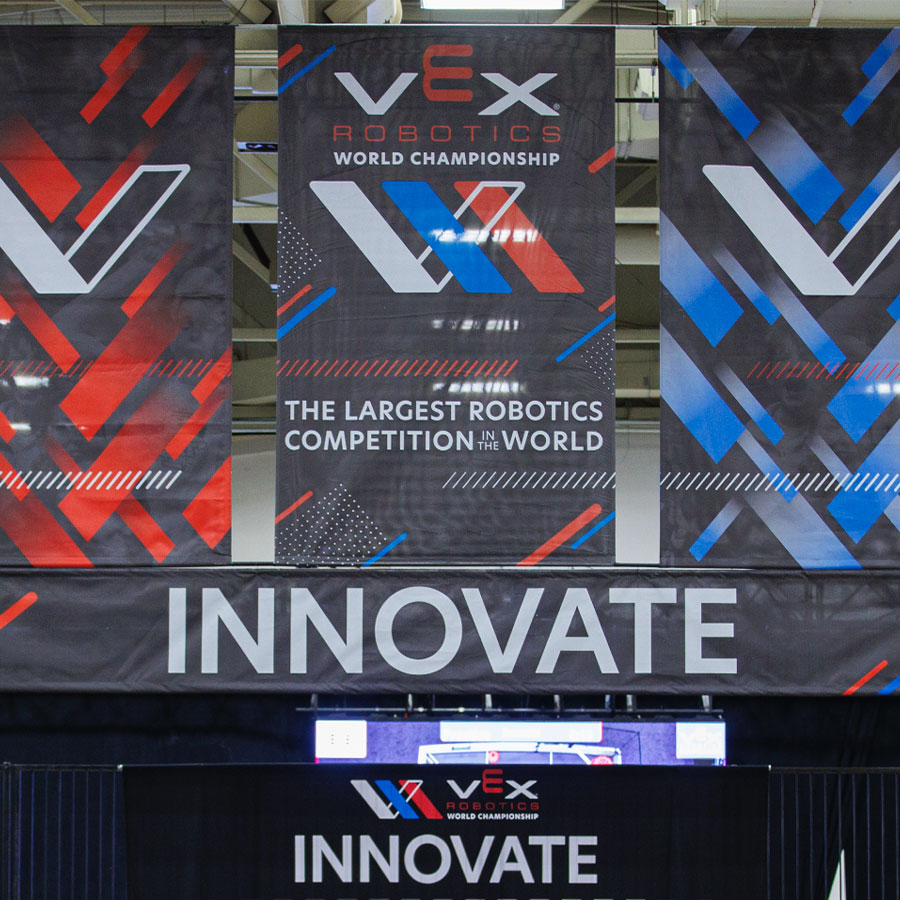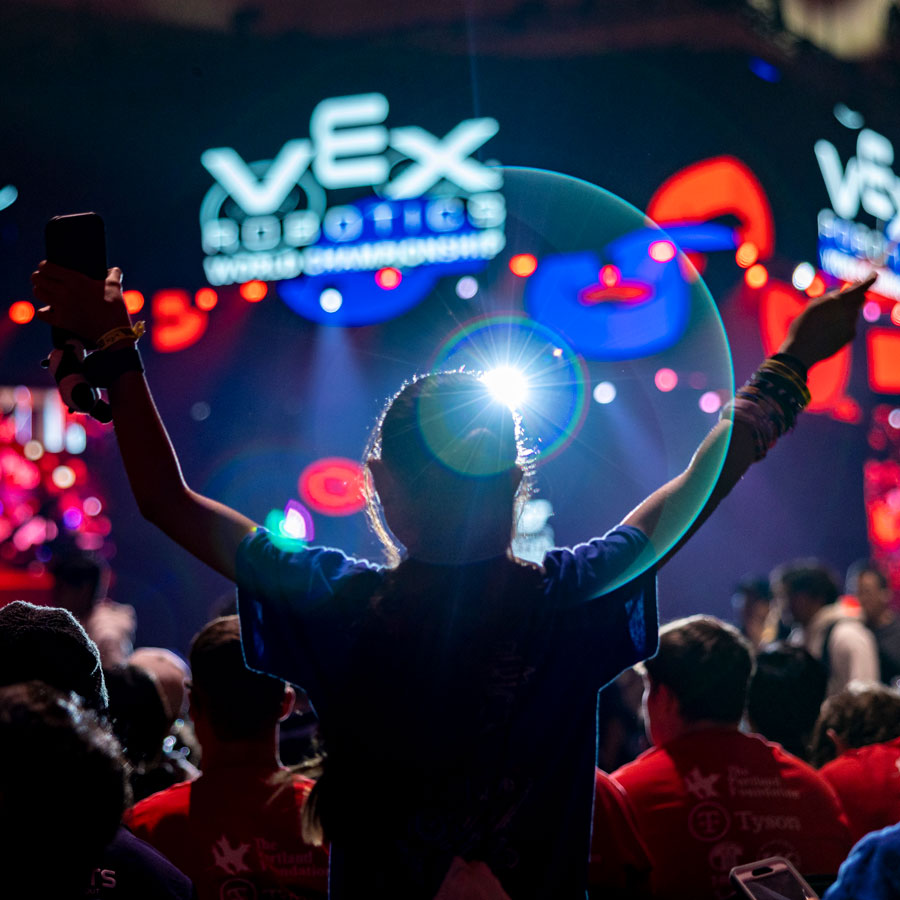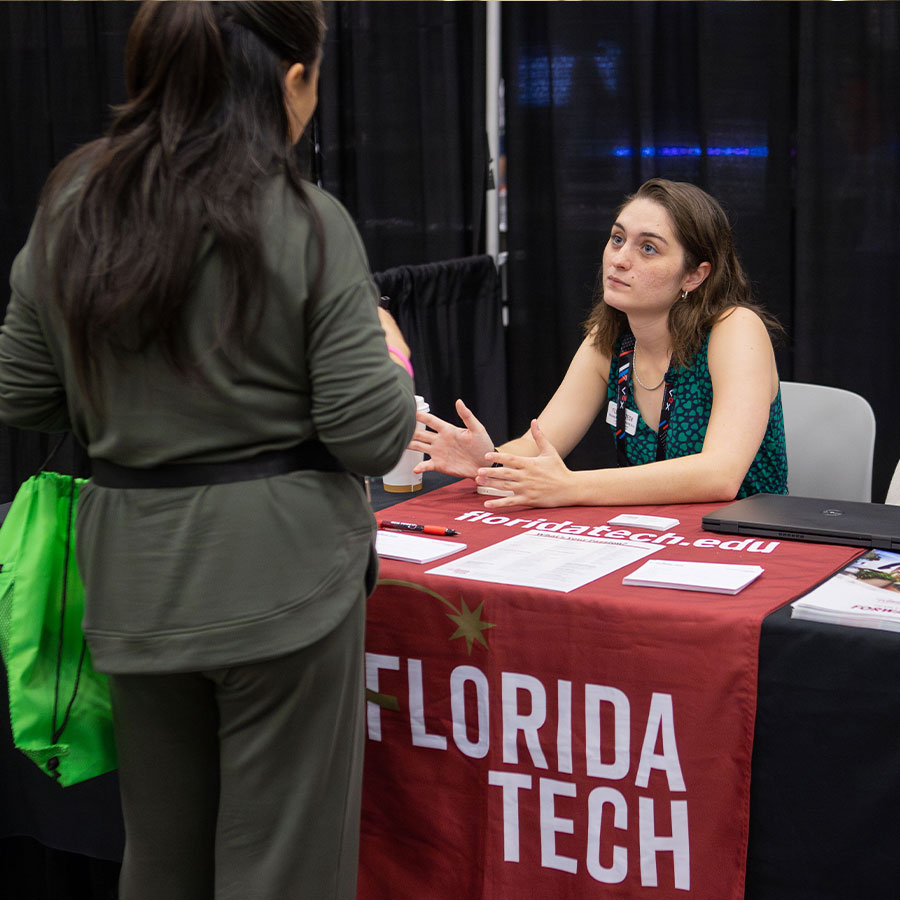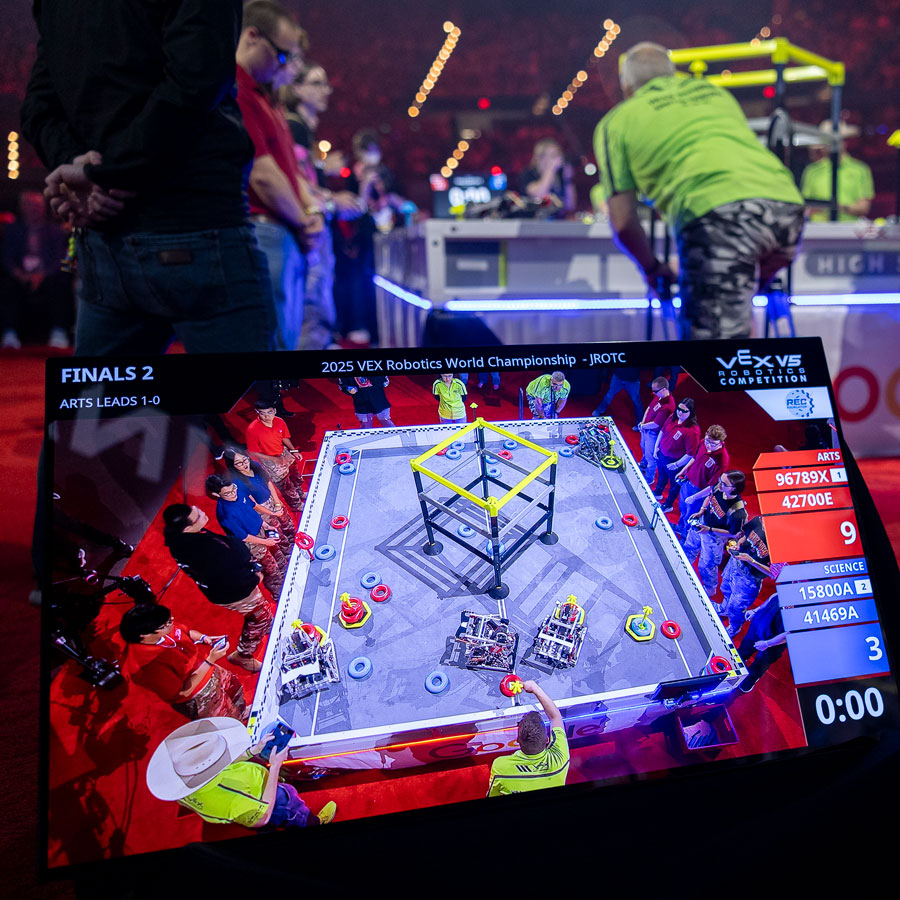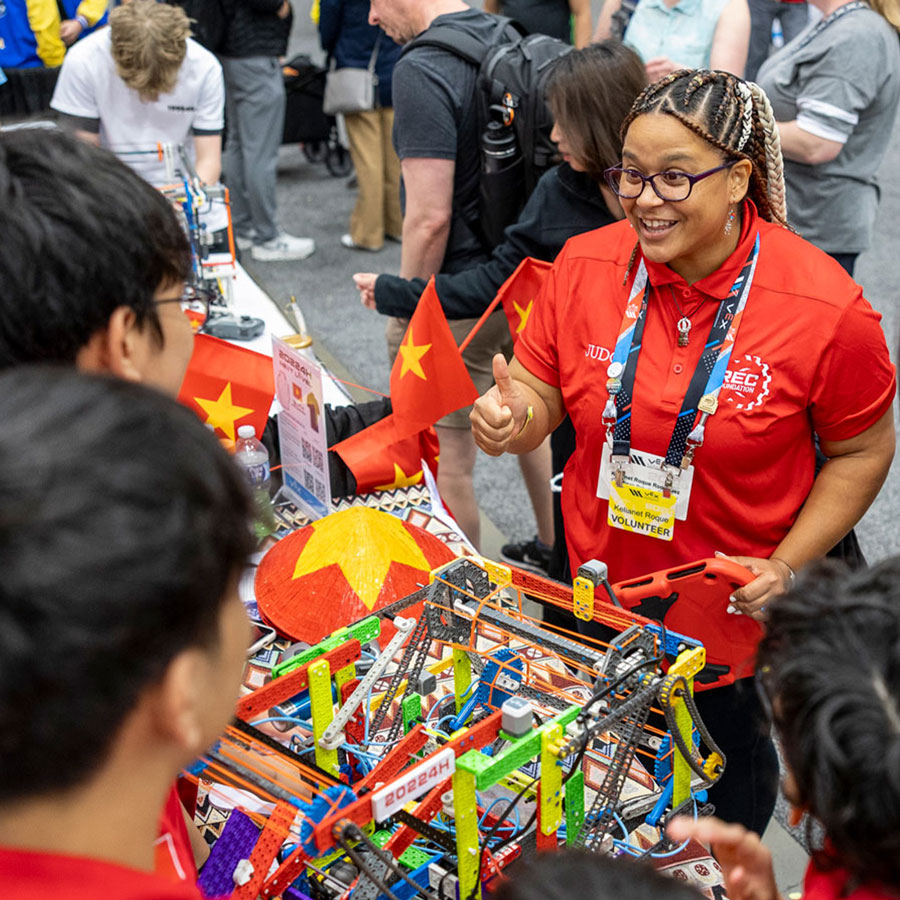
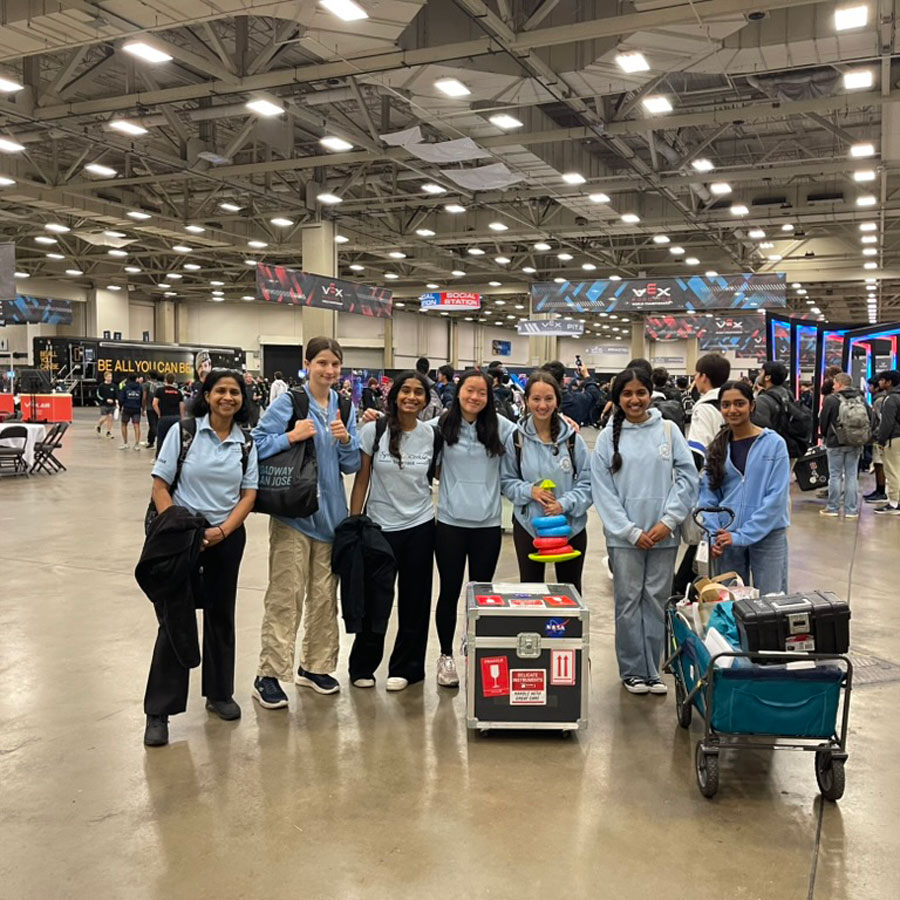
Located in Mountain View, CA, this team is building much more than robots; they’re building a future where women are at the forefront of science, technology, engineering, and mathematics (STEM). Meet Space Cookies VEX, team 1868A, an all-girls robotics team whose recent competitive season has been nothing short of extraordinary, culminating at the 2025 VEX Robotics World Championship.
Together for a year, the six-member team set ambitious goals for the 2024-2025 competition season. Their primary mission was to reach the California region 2 championship. However, what they achieved far exceeded their initial expectations when they made it all the way to the 2025 VEX Robotics World Championship.
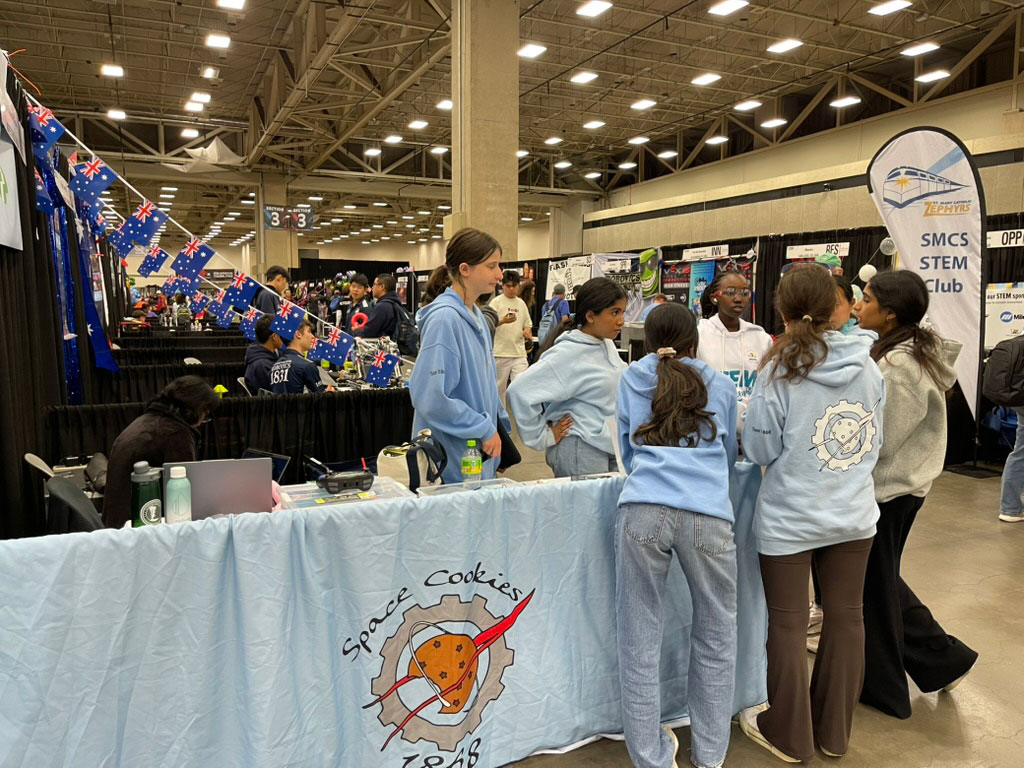
“That was pretty much the bigger goal of our season, and I think we were all pretty happy to make it to Worlds,” shared rising senior Harshini, who is the troop president and a fifth-year member of Space Cookies. The journey was not without its challenges. The team constantly iterated on their robot designs throughout the season, learning new techniques in mechanics and programming. One pivotal moment came late in the regular-season at a competition where they didn’t achieve their desired outcome in a Robot Skills Competition. Yet, they walked away from the same tournament with the Excellence Award. “I learned a lot about looking for the positive moments even when there’s big struggles,” shared MeiLin, a senior and now design mentor on the team.
Beyond technical skills, the Space Cookies have honed invaluable soft skills, a collaborative spirit, and have found motivation when faced with outside doubt. As Gauri, now a freshman in college, put it, “Our team dynamic has grown a lot throughout the season, and we’re a pretty strong team because of it.” Harshini added, “Being a team of all girls, people are going to discount you. People are going to think you’re less than…we did a really good job in pushing through that as well as pushing through the stereotypes of girls being in STEM.” The team pushed through and their journey to Worlds was a powerful statement against these biases.
Julia, the team’s programming captain said, “I liked how there were a lot of other teams who would see us as, in some ways, equals in robotics, we haven’t seen anything like it. Additionally, Bay area robotics is subtly male dominated, which meant we never saw that many all-female robotics teams. At worlds, we were able to meet and connect with so many more girls in robotics than we were able to ever before, and in the past 3 years I’ve personally never seen a larger number of girls in experienced teams.”
The Space Cookies’ experience sheds light on the unique challenges and immense benefits of having more women in STEM. As the troop president, Harshini gave her thoughts, “I think the great thing about Space Cookies and being on a team with all girls is being able to share experiences with other girls and pushing each other to be better in the field of engineering and the field of STEM.” She added, “When there’s more perspectives we can innovate better than just having one perspective, or the male perspective.”
This skepticism fuels their determination to prove themselves. Ellie, team 1868A’s High Stakes captain, has gained leadership skills and become more confident in speaking up and sharing her opinions. Being surrounded by talented female engineers at NASA also provides tangible role models. “You see them and you’re like, ‘Wow, they work at NASA. I could work at NASA, too, someday.'”
The very existence of the Space Cookies robotics program is a testament to the vision and dedication of the team’s founder, Dr. Wendy Holforty, who worked in NASA’s Office of Education and is now in the Intelligent Systems Division. Dr. Holforty was motivated to start an all-girls team after her then-boss expressed the need. She established a partnership between NASA and the Girl Scouts, proposed the idea to the Girl Scouts, started the Space Cookies team in 2006, and became a VEX Robotics team in 2012. Dr. Holforty’s advice to young women interested in STEM is, “Not to let anybody tell them they can’t do something and to go after what they want.” The program’s core mission is to empower girls, instilling the confidence to advocate for themselves. Dr. Holforty recounted how shy new members quickly transform, learning to voice their opinions and even challenge her, a vital skill for future leaders. The team even has a tradition of encouraging girls to “sit at the table” during meetings, affirming the importance of their perspective and voice.
“These are the very important skills for them in the future, as an employee or as an employer themselves, those are the very essential skills for them to succeed in their life,” says Coach Hema. The program’s structure, which rotates members annually, ensures that girls from sixth to twelfth grade learn to interact, negotiate, and collaborate with different personalities, preparing them for the diverse dynamics of the workplace. The team typically has 24 members from over a dozen different schools who form four VEX competition teams each season.
The team’s success is also a testament to the coaches’ dedication and belief in the girls’ abilities. Coaches emphasized seeing timid first-year girls transform into confident leaders who question, lead conversations, and persist through challenges. Even when their ideas might seem unorthodox, the coaches allow them to experiment and learn from their experiences, fostering a sense of ownership and resilience.
For aspiring coaches, especially those without a STEM background, the advice is simple, from Coach Chuck, “If you can say this phrase, ‘I don’t know; how would you do it?’ Then you can be a coach.” The emphasis is on guiding and facilitating, rather than dictating. Coaches learn alongside the girls, fostering an environment where everyone grows. As one coach wisely stated, during competitions, the coaches’ role shifts from instructor to “cheerleader,” ensuring the girls feel supported and empowered to direct their robotics journey.
Beyond competition, outreach is a significant component of the Space Cookies’ mission. They actively engage with the community, particularly with younger girls, partnering with Girl Scouts to host events for children as young as kindergarten. These events provide early exposure to STEM, teaching them about engineering and building simple robots like brushbots.
Witnessing the enthusiasm of girls younger than them has also been a bright spot for the team. “It was really rewarding because we were able to reach out to younger girls and teach them about engineering, which all of us are passionate about,” Ellie shared. By demonstrating their robots and showcasing their achievements, the Space Cookies are proof that all-girl teams can reach remarkable goals, break down barriers, and empower the next generation of female innovators in STEM.
